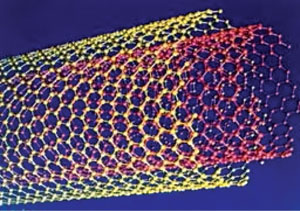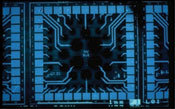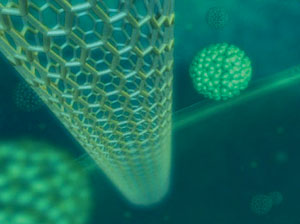A Happy and Prosperous New Year to everyone! While I thought 2010 was a good year on balance, I am looking forward to a great year ahead and hope all of you have a wonderful 2011. The beginning of the second year of my presidency is a great time to review the Society accomplishments in 2010, and talk a little bit about the plans and initiatives for 2011.
EMC Society Accomplishments in 2010
The just concluded 2010 has been a vibrant and active year for our Society and we have been successful in our skills to look ahead and expand into new areas both technically and geographically.
As we look back on our initiatives and accomplishments over the last year, we can be proud of several things, including:
- Special technical committees addressing emerging technologies—Three new special committees that focus on emerging technologies have been established (more on this is coming later).
- Increased chapter development worldwide—We have welcomed two new chapters in South Africa and Nigeria, the first in Africa for our Society.
- Expanding EMC Symposia worldwide—The EMC Society Board Directors has approved holding two EMC Symposia in 2015, one International that will be held in Dresden (Germany), and one in Region 1–7.
- Increased Impact Factor (IF)—The EMC-Transactions has increased its IF from 1.083 to 1.294.
- Review of the EMC Transactions—Our periodical has successfully passed the traditional five year review by the IEEE.
- EMC Magazine—The IEEE has approved the transition of this Newsletter to an EMC Magazine that will be launched in January 2012.
- Procedure for technical co-sponsorship—A new approval process has been approved for providing EMC Society technical co-sponsorship to symposia (more details are provided in the following).
- Development and approval of the EMC Society Strategic
Plan—After a three year effort, the EMC Society completed the development and approved the Strategic Plan (SP). (More on this will come in the next issue of the EMC Newsletter.)
- Creation of a Sections Coordinator position—The Section coordinator is responsible for: 1) being the liaison between Society Chapters and Sections, in improving relations, 2) coordinating Society local activities with Sections as well as local chapters, 3) supporting the formation of new chapters in Sections where there are no existing chapters and 4) supporting Society activities at Section events, including the Sections Congress event.
Special Technical Committees:
Addressing Emerging Technologies
The ability of the EMC Society to look ahead and stay tuned with new, emerging technologies is of paramount importance to be abreast of the times.
As part of the IEEE-wide involvement in Smart Grid activities, the EMC Society established a focus group on Smart Grid and has dedicated to it significant resources and efforts. A Special Technical Committee (SC1) on Smart Grid has been established within the Technical Advisory Committee (TAC). This special committee is tasked with coordinating the EMC Society activity on providing EMC principles for organizations and associated documentation and specifications that address the efficient use of the AC power grid including the control of power entering a house or building. Such control may be from a meter at the point of power entry into these facilities to control incorporated into appliances and other electronic devices in these facilities. Such controllers may be sources of undesirable RF emissions and at the same time vulnerable to the RF environment, hence the need for EMC.
In addition, two further special committees reporting to the TAC were recently established
SC2: Low Frequency EMC—This special committee is concerned with low-frequency EMC including Power Quality in electric power systems. The committee is focusing on application of fundamental EMC concepts also to low frequency conducted disturbances. EMC in power systems is expected to be increasingly important. This is due to increased use of electronics in renewables, electric vehicles, energy efficient technologies and Smart Grid applications.
SC3: Transportation System EMC—This committee is concerned with the component and system design, testing, and modeling/simulation of transportation systems. This includes both passenger carrying and non-passenger vehicles such as automobiles, trucks, trains/trams, and aircraft. Special emphasis is on the latest developments in high power and high voltage systems used for propulsion or control.
Whoever might be interested in joining the activities of these special committees is encouraged to contact one of the committee officers who can be found at https://ewh.ieee.org/soc/emcs/technical-committees.html.
Technically Co-Sponsored Symposia:
A New Approval Process
Recognizing the importance of collaboration with other IEEE and non-IEEE entities in symposia activities, the EMC Society has created a new formal process for granting Technical Co-Sponsorship to other events. The revision of the approval process ended in 2010, and was intended to meet the new IEEE co-sponsorship policy that is requesting a much more tightly scrutinized process after several cases of hoaxed and computer-generated papers (occurring with other IEEE Societies).
This new process provides the balance between the desire to collaborate with other symposia and conferences (primarily, enhanced visibility and presence globally) and the need to ensure the quality of those events with whom the EMC Society is engaged. This process involves an evaluation by the Technical Advisory Committee (TAC) providing the technical point of view, and the entire Board of Directors (BoD) who approves (or disapproves) the request, while considering additional aspects as well.
Technical co-sponsorship is an arrangement whereby the IEEE EMC Society enters into an agreement with a technical event outside the EMC Society and, per IEEE policy, indicates direct and substantial involvement by the EMC Society solely in the organization of the technical program. The level of technical involvement will depend on the mutual desires of the EMC Society and the organizers of the event, but typically would include participation in the review and selection of some of the papers for the technical program.
Usually the EMC Society offers technical co-sponsorship on a case by case basis, e.g. if the conference is part of a series, every single event has to apply for the technical co-sponsorship.
The formal way toward a technical co-sponsorship is as follows:
- An organizer of a conference should submit the application together with the completed “Questionnaire for TCS Application” (available at https://ewh.ieee.org/soc/emcs/technicalsponsorship.html) to the Global Symposia Coordinator (GSC) of the EMC Society (email: GSC-EMC Society@ieee.org).
- The application is then evaluated by the EMC Society’s Technical Advisory Committee (TAC) who has the responsibility for the technical programs of the Society. The level of involvement in the Symposium technical organization will be at the discretion of the TAC based upon inputs provided by the event requesting technical co-sponsorship.
- After TAC recommends approval, the GSC prepares the Memorandum of Understanding (MoU) in negotiation with the conference organizer.
- The application together with TAC recommendation is then brought to the attention of the EMC Society Board of Directors who will discuss the application and vote on approval.
- The EMC Society submits the MoU to IEEE HQ for review and final approval.
Technical co-sponsorship must be granted prior to the issuance of the call for papers by the event. This must happen in order to allow the event committee to use the IEEE and IEEE EMC Society logos in their call for papers and other advertising.
In order for this to occur, the request for technical co-sponsorship must be received by the EMC Society at least five months prior to the planned publication date of the call for papers. This required time allows for a review by the TAC, time to generate the MOU, time for voting by the EMC Society BoD, time for IEEE approval of the MOU, and time for both parties to sign the MOU so that the yes/no decision may be forwarded to the event committee two weeks prior to their planned publication date for the call for papers.
The TCS request form (available at https://ewh.ieee.org/soc/emcs/technicalsponsorship.html) must be completed in full to provide the TAC with the necessary information to evaluate the level of effort needed to support or deny support to the event. The Global Symposia Coordinator will provide guidance through the application process. Any questions should be sent to GSC-EMC Society@ieee.org.
At present, the EMC Society has the following list of co-sponsored conferences and technical meetings:
- SPI 2011 – 15th IEEE Workshop on Signal Propagation on Interconnects, May 8–11, 2011, Naples, Italy
- 2011 Asia Pacific EMC Symposium, May 16–19, 2011, Jeju Island, Korea
- EMC Europe 2011, September 26–30, 2011, York, UK
- EMC COMPO 2011, November 6–9, 2011, Dubrovnik, Croatia
- IEEE COMCAS 2011, November 7–9, 2011, Tel Aviv, Israel
Emerging Technologies:
The IEEE Transactions
on EMC Presents
a Special Issue on Nano-EMC
As a result of increasing activity of the recently established technical committee TC-11 on Nanotechnology, the IEEE Transactions on EMC will publish a Special Issue on “Applications of Nanotechnology in Electromagnetic Compatibility (nano-EMC).” This Special Issue is intended to present recent research advances in nano-scale science and nanotechnology with applications of interest for the EMC community. The Special Issue is aimed to bridge the gap between nano-scale science and technology and EMC; to present new materials, devices and processes for EMC applications exploiting the power of nanotechnology; and to investigate EMC issues related to the integration of nano-components in micro and macro electrical and electronic systems.
Suggested topics to be covered in this issue include: electromagnetic modeling and characterization of nano-structured materials, devices and systems for EMC; nano-structured materials for EMC applications, such as EM shielding, EM energy absorption, antistatics, surge suppression and protection, novel devices; electrical and EM properties of nano-composites for EMC; nano-interconnects for next generation ICs; signal integrity in nano-components and nano-devices; nano-structured sensors for EMC; MEMS-based technology for smart antennas arrays and frequency-selective surfaces for EMC; nano-
metrology for EMC.
Papers must be submitted by May 1, 2011. For more info, please look at the call of papers available on page 55 of this Newsletter.
  
The IEEE Transactions on EMC will present a special issue in 2011 on nanotechnology related to EMC.
Breaking News
EMC Society Standards
Travel Grant
Now Available!
At the November EMC Society Board of Director’s meeting, the Board unanimously approved the implementation of a special grant that was received from a donor. The Grant is to partially help those EMC Society members to actively participate in EMC Society standards development and attend regular meetings of the EMC Society Standards Development Committee (SDCom), the Standards Advisory and Coordination Committee (SACCom) and the Standards Education Committee (SETCom).
The EMC Society appreciates the opportunity for advancing the standards activity of the Society via the implementation of the travel grant. The EMC Society will administer the Grant by providing proper oversight of delegated duties to a Standards Travel Grant Committee. Details of the Standards Travel Grant are available in the Standards Column later on in this issue. For any additional info as well as for getting the travel grant request form, please contact the VP for Standards, Don Heirman (d.heirman@ieee.org).
Board of Directors Meetings
The next EMC Society Board of Directors (BoD) meeting is scheduled on March 28–30, in Fort Lauderdale. I remind you that all meetings of the EMC Society BoD are open. Any members who want to attend will be most welcome. The schedule of the BoD meeting is posted on the website at https://www.ewh.ieee.org/soc/emcs/conferences.html, and in the calendar section of the Newsletter.
Call for Volunteers
The success of our Society is possible thanks to the many fine volunteers who have contributed unselfishly of their time and talent. As the Society evolves, and new initiatives emerge, we are always in need of volunteers. Please, give serious consideration to becoming involved in our broad and challenging goals and objectives. The full list of committees can be found on our website at https://www.ewh.ieee.org/soc/emcs/directors.html.
I look forward to working with all of you who join the volunteers of the Society, helping achieve the set of our goals for the benefit of us all. For making a suggestion, comment, or just for dropping a friendly note, please do not hesitate to e-mail me at: fr.maradei@ieee.org. EMC |
 President’s Message
President’s Message

